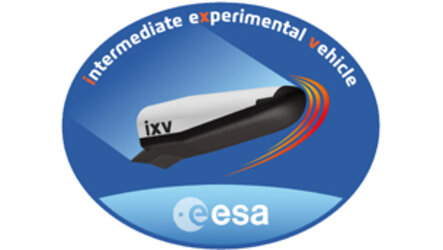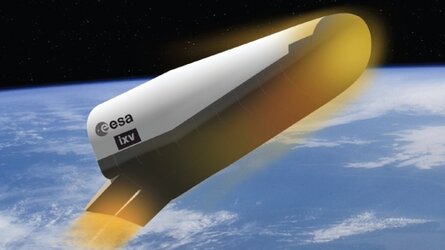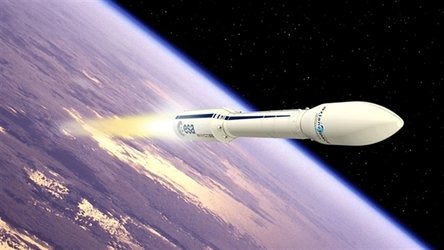ESA’s spaceplane is coming home
ESA’s IXV spaceplane, launched on a Vega rocket on 11 February, is now on its way to Europe for detailed study in Italy.
The mission of only 100 minutes was flawless and ended with a safe splashdown in the Pacific Ocean, just west of the Galapagos islands.
The Nos Aries recovery ship waited while divers in speedboats approached the floating craft and checked for residual propellant fumes.
On the all-clear, the boat carefully manoeuvred closer and the recovery crane hoisted the Intermediate eXperimental Vehicle, IXV, to safety before the fuel tank was cleaned out for the journey home.

Nos Aries will arrive in Genoa in Italy towards the end of March. IXV, still packed inside its container, will then travel to Turin for inspection and further analysis.
IXV looks to be in great shape and shows only light scorching from the blazing plasma of reentry.
Launched from Europe’s Spaceport in Kourou, French Guiana, IXV separated from the rocket at an altitude of 340 km and continued up to 412 km before starting its descent back to Earth.
While reentering from this suborbital path, it recorded a vast amount of data from more than 300 advanced and conventional sensors studding the carbon-fibre panels of its underbody.

Inside the vehicle, compartments housed the avionics, parachute and actuators controlling the thrusters and flaps.
As it descended, the five-metre-long, two-tonne craft manoeuvred to decelerate from hypersonic to supersonic speed. The entry speed of 7.5 km/s at an altitude of 120 km mimicked the conditions experienced by a vehicle returning from low orbit.
IXV glided through the atmosphere before parachutes deployed to slow the descent further.
IXV’s fully controlled reentry from orbital velocity and altitude represents an important first for Europe. The information gathered from this mission will shape the design of future reusable reentry vehicles.















 Germany
Germany
 Austria
Austria
 Belgium
Belgium
 Denmark
Denmark
 Spain
Spain
 Estonia
Estonia
 Finland
Finland
 France
France
 Greece
Greece
 Hungary
Hungary
 Ireland
Ireland
 Italy
Italy
 Luxembourg
Luxembourg
 Norway
Norway
 The Netherlands
The Netherlands
 Poland
Poland
 Portugal
Portugal
 Czechia
Czechia
 Romania
Romania
 United Kingdom
United Kingdom
 Slovenia
Slovenia
 Sweden
Sweden
 Switzerland
Switzerland






























